Edition 2020
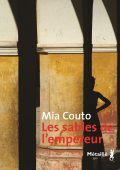

Le Prix Jan Michalski de littérature 2020 est décerné à Mia Couto pour sa trilogie As areias do imperador (Editorial Caminho, 2015-2017), traduite du portugais (Mozambique) en français par Elisabeth Monteiro Rodrigues, sous le titre Les sables de l’empereur (Éditions Métailié, 2020).
Le jury a salué « l’exceptionnelle qualité de l’écriture, mêlant subtilement oralité et narration, lettres, récits, fables, rêves et croyances, au cœur d’une réalité historique, le Mozambique à la fin du XIXe siècle aux prises avec la colonisation portugaise. Sans aucun manichéisme, l’auteur excelle à camper avec empathie des protagonistes confrontés à l’inhumanité de la guerre en leur offrant un souffle épique porté par la riche nature africaine. »
Le Prix, remis par la Fondation Jan Michalski pour l’écriture et la littérature à Montricher, en Suisse, se déroule en ligne cette année. Les interventions sont à suivre ci-après.
Capsule 1 Discours de Vera Michalski-Hoffmann, présidente du jury
Capsule 2 Laudatio pour Mia Couto de Maya Jaggi, critique et écrivaine
Capsule 3 Discours de Mia Couto, lauréat
Capsule 4 Lectures en portugais par Mia Couto et en français par Elisabeth Monteiro Rodrigues, traductrice
Extraits de As areias do imperador (Editorial Caminho, 2015-2017) et Les sables de l’empereur (Éditions Métailié, 2020), Prix Jan Michalski de littérature 2020
Capsule 5 Témoignages des membres du jury du Prix Jan Michalski 2020 : Jul (Julien Berjeaut), Siri Hustvedt, Benoît Duteurtre, Andreï Kourkov, Alicia Giménez Bartlett et Tomasz Różycki
Capsule 6 Lauréat du Prix Jan Michalski 2020, Mia Couto reçoit une récompense de CHF 50’000.- ainsi qu’une œuvre d’art choisie à son intention : une paire de sculptures uniques de l’artiste nigérian Alimi Adewale, « Sans titre », 2019, en bois azobé, hauteur 47 cm.
Né de parents portugais au Mozambique en 1955, l’écrivain et biologiste Mia Couto grandit à Beira, puis déménage dans la ville de Maputo. Il entame des études de médecine qu’il interrompt pour s’engager aux côtés du Frelimo (Front de libération du Mozambique) en faveur de l’indépendance du Mozambique qui intervient en 1975. Il devient ensuite journaliste, notamment pour Tempo et Noticias, avant de poursuivre une carrière de biologiste, spécialiste des zones côtières, en parallèle de son travail d’écriture. Il enseigne également l’écologie à l’Université de Maputo.
À travers un ensemble de contes, de chroniques, de poésie, de nouvelles et de romans, Mia Couto déploie une œuvre littéraire magistrale, à la fois érudite et populaire, drôle et tragique, universelle et enracinée dans son Mozambique natal. De Terre somnambule (Albin Michel, 1994) sur fond de guerre civile à la trilogie Les sables de l’empereur (Métailié, 2020), en passant par La véranda du frangipanier (Albin Michel, 2000), Tombe, tombe au fond de l’eau (Chandeigne, 2005), Et si Obama était africain (Chandeigne, 2010) ou encore L’accordeur des silences (Métailié, 2011, Prix de la francophonie 2012), l’auteur entremêle les oralités, les légendes et croyances africaines à la violence de l’histoire de son pays ainsi qu’au questionnement des racines.
Traduits dans plus de trente langues, ses textes ont reçu de nombreuses récompenses, dont le Prix Camões 2013 et le Prix Neustadt 2014 pour l’ensemble de son œuvre. Mia Couto est aujourd’hui considéré, tant par la critique que par ses pairs, comme l’un des écrivains africains les plus importants et l’une des voix lusophones les plus marquantes.
Aujourd’hui Prix Jan Michalski 2020, Les sables de l’empereur de Mia Couto, récit initialement publié en trois tomes réunis en un volume pour l’édition en français, nous plonge dans le Mozambique de la fin du XIXe siècle, alors ravagé par les guerres qui opposent clans et colons. L’empereur Ngungunyane notamment, à la tête du royaume de Gaza au sud du pays, résiste longtemps aux ambitions de la Couronne portugaise, avant d’être défait, déporté à Lisbonne où il est exhibé avec sa cour comme un trophée, puis exilé aux Açores. Au fil des trois parties de l’œuvre – Femmes de cendre, L’épée et la sagaie et Le buveur d’horizons –, Mia Couto narre autant qu’il questionne cette réalité historique par la voix croisée de deux personnages fictionnels : Imani Nsambe, une jeune Mozambicaine éduquée par des missionnaires portugais, et celui pour qui elle doit travailler en tant qu’interprète et à qui elle sera liée par un amour impossible, le sergent Germano de Melo. Ce dernier, envoyé en Afrique par la monarchie portugaise en raison de son idéologie républicaine, affiche sa distance avec sa hiérarchie. Leurs expériences se complètent ; si Germano s’applique à décrire dans ses lettres les conflits se déroulant sous ses yeux et ses difficultés à intégrer les valeurs du colonialisme, Imani, quant à elle, porte les déchirures d’être entre plusieurs mondes, entre plusieurs langues, avec comme seule alliée la mémoire des légendes africaines. Sa maîtrise parfaite de la langue des colons la laisse en marge de la communauté noire, ses origines l’éloignent des occupants, dans une destinée où pourtant, traductrice puis espionne captive, elle crée des ponts entre Portugal et royaume de Ngungunyane.
Flamboyante et douloureuse, l’épopée d’Imani et de Germano sera faite d’exils successifs, de tentatives de rapprochement et d’incompréhensions, de doutes et de violences, concentrant tout ce que peut produire le choc de la colonisation, avec cette particularité d’être raconté sur un mode polyphonique. Ces personnages aux identités plurielles, âmes éclatées, nous offrent alors par leur regard fragmenté de multiples perspectives sur l’histoire afin de mieux la comprendre.
Ainsi Les sables de l’empereur, à la fois fresque historique et conte envoûtant, puissant portrait de femme, histoire d’amour et d’humanité, réussit à faire se rencontrer l’ailleurs et l’ici. Avec une langue inventive, renouvelée par les territoires est-africains, irriguée d’une poésie singulière, Mia Couto interroge les croyances, mélange les mondes et floute les frontières dans une méditation universelle sur l’altérité.
Lauréat du Prix Jan Michalski 2020, Mia Couto reçoit une récompense de CHF 50’000.- ainsi qu’une œuvre d’art choisie à son intention : une paire de sculptures uniques de l’artiste nigérian
Alimi Adewale, Sans titre, 2019, en bois azobé, hauteur 47 cm.

Les sables de l’empereur,
Trilogie, traduit du portugais (Mozambique) par Elisabeth Monteiro Rodrigues
Métailié, Paris, 2020
Proposé par Vera Michalski-Hoffmann

Oreo,
Traduit de l’anglais (Etats-Unis) par Séverine Weiss
Post-éditions, Paris, 2014
Proposé par Siri Hustvedt

Retour à Lemberg,
Traduit de l’anglais par Astrid von Busekist
Albin Michel, Paris, 2017
Proposé par Andreï Kourkov

Les sables de l’empereur,
Trilogie, traduit du portugais (Mozambique) par Elisabeth Monteiro Rodrigues
Métailié, Paris, 2020
Proposé par Vera Michalski-Hoffmann

Oreo,
Traduit de l’anglais (Etats-Unis) par Séverine Weiss
Post-éditions, Paris, 2014
Proposé par Siri Hustvedt

Briser en nous la mer gelée,
Gallimard, Paris, 2020
Proposé par Benoît Duteurtre

Vies conjugales,
Rivages, Paris, 2019
Proposé par Benoît Duteurtre

Retour à Lemberg,
Traduit de l’anglais par Astrid von Busekist
Albin Michel, Paris, 2017
Proposé par Andreï Kourkov

Les sables de l’empereur,
Trilogie, traduit du portugais (Mozambique) par Elisabeth Monteiro Rodrigues
Métailié, Paris, 2020
Proposé par Vera Michalski-Hoffmann
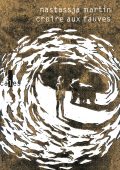
Croire aux fauves,
Verticales, Paris, 2019
Proposé par Vera Michalski-Hoffmann

La légèreté,
Dargaud, Paris, 2016
Proposé par Jul (Julien Berjeaut)

Les enfants du 209 rue Saint-Maur Paris Xe,
Seuil, Paris, 2020
Proposé par Jul (Julien Berjeaut)

An einem klaren, eiskalten Januarmorgen zu Beginn des 21. Jahrhunderts,
S. Fischer Verlag, Frankfurt am Main, 2016
Proposé par Alicia Giménez Bartlett
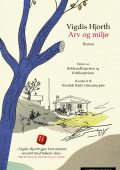
Arv og miljø,
Cappelen Damm, Oslo, 2016
Proposé par Alicia Giménez Bartlett

Oreo,
Traduit de l’anglais (Etats-Unis) par Séverine Weiss
Post-éditions, Paris, 2014
Proposé par Siri Hustvedt

L’ordre étrange des choses : la vie, les sentiments et la fabrique de la culture,
Traduit de l’anglais (Etats-Unis) par Jean-Clément Nau
Odile Jacob, Paris, 2017
Proposé par Siri Hustvedt

Kochankowie Justycji,
Wydawnictwo Warstwy, Wroclaw, 2019
Proposé par Tomasz Różycki

Cieśniny,
Wydawnictwo Czarne, Wołowiec, 2019
Proposé par Tomasz Różycki

Briser en nous la mer gelée,
Gallimard, Paris, 2020
Proposé par Benoît Duteurtre

Vies conjugales,
Rivages, Paris, 2019
Proposé par Benoît Duteurtre

Le jour d’avant,
Grasset, Paris, 2017
Proposé par Andreï Kourkov

Retour à Lemberg,
Traduit de l’anglais par Astrid Von Busekist
Albin Michel, Paris, 2017
Proposé par Andreï Kourkov
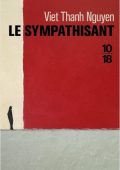
Le sympathisant,
Traduit de l’anglais par Clément Baude
Belfond, Paris, 2017
Proposé par Carsten Jensen
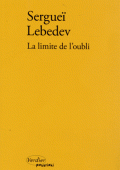
La limite de l’oubli,
Traduit du russe par Luba Jurgenson
Verdier, Lagrasse, 2014
Proposé par Carsten Jensen
